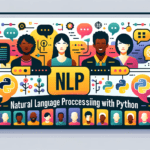In the bustling rhythm of modern life, amidst the cacophony of daily tasks and interactions, a quiet revolution is underway, reshaping the very fabric of our existence. While headlines often tout the latest breakthroughs in artificial intelligence (AI), from self-driving cars to virtual assistants, the true impact of AI lies not solely in the realm of the extraordinary, but rather in the subtlety with which it integrates into our everyday lives. From the moment we wake to the instant we rest our heads, AI silently permeates our routines, altering how we work, play, and connect with the world around us.
The Evolution of AI from Science to Everyday Reality
Scientific Inspirations: Science fiction has long served as a fertile ground for exploring the concept of artificial intelligence (AI) and its implications for humanity. From early literary works to blockbuster films, the genre has captivated audiences with visions of intelligent machines, sentient robots, and advanced computer systems. These imaginative portrayals have not only entertained but also shaped public perceptions of AI, influencing how we think about its potential and its risks.
The Birth of AI: the birth of artificial intelligence (AI) represents a seminal moment in computing history, emerging from a fusion of mathematical theory, logic, and the aspiration to create machines mirroring human intelligence. Spearheaded by visionaries like Alan Turing, John McCarthy, and Herbert Simon, the formalization of AI as a field during the 1950s Dartmouth conference laid the foundation for decades of exploration and advancement. Early AI pursuits delved into symbolic reasoning systems and neural networks, yielding breakthroughs like the Logic Theorist and early neural network theories. Despite challenges and skepticism, AI’s inception sparked a technological revolution driving automation, machine learning, and intelligent systems that now permeate every facet of modern life, reshaping our world profoundly.
Early Challenges: The AI Winter, characterized by dwindling funding and disillusionment due to unmet expectations, led to a slowdown in AI research during the 1970s and 1980s. Critics argued that AI had failed to deliver on its promises, exacerbating doubts about the feasibility of achieving human-level intelligence in machines. However, the field experienced a resurgence in the late 20th century with new computational techniques, increased computing power, and breakthroughs in machine learning, leading to a renewed interest in AI research and applications. This resurgence paved the way for the AI renaissance of the 21st century, marked by unprecedented progress and widespread adoption of AI technologies.
Turning Dreams into Reality: In today’s world, the once fantastical visions of artificial intelligence (AI) have become tangible realities ingrained in our daily existence. From virtual assistants streamlining everyday tasks to recommendation systems customizing our experiences, AI seamlessly intertwines with our routines. Healthcare reaps the benefits of AI’s capabilities, facilitating precise diagnoses, and treatment predictions, and even aiding in surgeries. Additionally, AI-driven autonomous vehicles ensure safer and more efficient journeys in transportation. These instances exemplify the transformative potential of AI, continuously reshaping societal norms and offering a glimpse into a future where intelligent systems enrich and elevate human endeavors.
From Science Fiction to Science Fact: The evolution of artificial intelligence (AI) from science fiction to reality has revolutionized society, reshaping industries and daily life. Once confined to the imagination, AI now powers intelligent robots, autonomous vehicles, and personalized recommendation systems, impacting every facet of our lives. While AI offers transformative benefits, its rapid growth also raises ethical, societal, and economic concerns, including privacy issues and job displacement. Navigating these challenges is crucial to harnessing AI’s full potential for the betterment of
Milestones in AI Development:
Early Foundations: From Logic to Expert Systems:
The Birth of AI: Artificial intelligence (AI) finds its roots in the pioneering work of Alan Turing, who laid the conceptual groundwork for intelligent machines with his theoretical model of computation. This vision of machines capable of mimicking human thought processes culminated in the 1956 Dartmouth Conference, where the term “artificial intelligence” was coined, marking the formal birth of the field.
Logic and Symbolic AI: Early AI research focused on symbolic reasoning and logic-based approaches to problem-solving, inspired by the work of logicians like George Boole and Kurt Gödel. The Logic Theorist, developed by Allen Newell and Herbert Simon in 1956, demonstrated the potential of AI systems to prove mathematical theorems. This era also saw the emergence of expert systems, which aimed to codify human expertise in specific domains using rule-based reasoning
The AI Winter and Resurgence: Challenges and Revolutions
The AI Winter: The AI Winter refers to periods of disillusionment and reduced funding for AI research, characterized by unmet expectations and skepticism about the feasibility of achieving human-level intelligence in machines. These downturns, notably in the 1970s and 1980s, were marked by limited progress and setbacks in AI development.
The Resurgence of AI: The resurgence of AI in the late 20th century was fueled by breakthroughs in machine learning, neural networks, and computational power. Innovations such as backpropagation and the development of deep learning algorithms revitalized interest in AI research, leading to unprecedented progress and advancements in the field.
Deep Learning Revolution: The Power of Neural Networks
From Perceptrons to Deep Learning: Neural networks, inspired by the structure and function of the human brain, have undergone a remarkable evolution from early perceptrons to sophisticated deep learning architectures. Advances in algorithms, data availability, and computing infrastructure have enabled the training of deep neural networks with unprecedented accuracy and efficiency.
Breakthroughs in Deep Learning: Deep learning has revolutionized various fields, including computer vision, natural language processing, and speech recognition. Breakthroughs in deep learning algorithms have enabled remarkable achievements, such as surpassing human performance in image classification tasks and generating coherent and contextually relevant
Applications Of AI in Everyday Life: From Virtual Assistants to Autonomous
Virtual Assistants: Siri, Alexa, and the Rise of Conversational AI
Virtual assistants powered by AI technologies, such as Siri, Alexa, and Google Assistant, have become ubiquitous in everyday life. These conversational AI systems provide users personalized assistance, information retrieval, and task automation through natural language interaction. In recent development, zoom launches AI companion for free to help its users to improve their productivity and work together more effectively in and after meetings.
Autonomous Vehicles: Autonomous vehicles represent a transformative application of AI technology, promising safer, more efficient, and more convenient transportation. AI-driven systems enable vehicles to perceive their environment, make decisions, and navigate autonomously, paving the way for a future of driverless mobility.
Future Frontiers: Exploring the Possibilities of AI Advancement
Beyond Narrow AI: The pursuit of artificial general intelligence (AGI) aims to create AI systems with human-like cognitive abilities, capable of understanding and learning from diverse tasks and environments. AGI represents a frontier of AI research with profound implications for society and humanity.
Human-AI Collaboration: Human-AI collaboration holds promise for augmenting human capabilities and addressing complex challenges across various domains. By leveraging the strengths of both humans and machines, collaborative AI systems can enhance decision-making, creativity, and problem-solving in diverse contexts.
Conclusion:
The journey of artificial intelligence (AI) from its inception to its current status as a transformative force in society reflects the culmination of decades of research and innovation. Starting with the visionary concepts of Alan Turing and the Dartmouth Conference, AI has weathered challenges, including periods of skepticism, to emerge stronger through breakthroughs in machine learning and neural networks. Today, AI permeates various facets of daily life, powering virtual assistants, autonomous vehicles, and advanced decision-making systems, highlighting its profound impact on industries and societies worldwide. As we reflect on this journey, it becomes evident that AI’s continued advancement requires ethical stewardship and responsible deployment to harness its full potential for the benefit of humanity.



